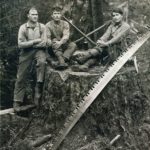
“We always thank God, the Father of our Lord Jesus Christ, when we pray for you,since we heard of your faith in Christ Jesus and of the love that you have for all the saints, because of the hope laid up for you in heaven. Of this you have heard before in the word of the truth, the gospel, which has come to you, as indeed in the whole world it is bearing fruit and increasing—as it also does among you, since the day you heard it and understood the grace of God in truth, just as you learned it from Epaphras our beloved fellow servant. He is a faithful minister of Christ on your behalf and has made known to us your love in the Spirit. And so, from the day we heard, we have not ceased to pray for you, asking that you may be filled with the knowledge of his will in all spiritual wisdom and understanding” (Colossians 1:3-9a).
I am assuming that most people reading this, just by your involvement with TMM, are interested and passionate about ministry in some form or fashion, whether professionally or otherwise (not that you have to be).
Regardless, I hope to shed some light from Colossians 1 about the role of the pastor, or any other leadership role in the church. Colossians is a rich text, and I encourage all of you to read it yourself, especially in one sitting. I think you’ll be greatly blessed.
One of the many reasons I love Colossians and frequent it often is because, especially the first chapter, it shows Paul’s tender, pastoral heart as a minister of the Gospel. I think that when most of us imagine Paul, we primarily see him as a giant of the faith, a defender of truth, a theologian above all theologians.
While all of these are most definitely true, we often forget that Paul was a minister who was committed to the building up of the church and passionate to see lives saved and changed by the gospel of God’s grace in Jesus Christ. Colossians 1 makes this evidently clear. From this chapter we see Paul’s heart as Intercessor, Encourager, and Servant. And from Paul’s example, those of us in ministry can be encouraged to do the same.
Because there is so much to glean from the first chapter of Paul’s letter to the Colossians, I will post a series of three posts, each one dealing with a different aspects of a minister that I mentioned above: Intercessor, Encourager, and Servant. The rest of this post will deal with the first: the pastor as Lead Intercessor. Also, it might be helpful to have your Bible with you as you are reading these posts so you can read the verses I am quoting!
The Pastor As Lead Intercessor
This first one is perhaps the hardest. Especially in the so-called “Cult of Personality” that runs rampant in modern-day Evangelicalism, many people have an extremely polished view of what the ministry involves and what a minister actually does. I feel like many people think of ministry in the context of a mega-church pastor with his trendy outfit and “relevant” sermon (whatever that means), and the perfect, seamless Sunday morning services that they are accustomed to. (Note: I am not trying to paint with broad brushstrokes and condemn all mega-churches. I attend a large church myself.) But this celebrity-type pastor in skinny jeans is not what ministry truly is.
First and foremost, the life of the minister is the life of an Intercessor. Ministry starts on our knees.
Ministry is not about the lights and cameras, or the fame and notoriety. Ministry, before preaching, teaching, leading, or vision-casting, is about going to the Throne of Grace on behalf of God’s people.
Prayer on behalf of his people is the single-most important duty of a pastor.This does not diminish the pastor’s role as teacher or preacher; in fact, I will argue two posts from now that teaching and preaching the Word of God is the primary public ministry of the pastor. But for now, we are focusing on the act of prayer as the primary ministry of the pastor.
As central as preaching is to the life of the church (and it is!), it only takes a few hours a week for preparation and about an hour on a Sunday morning for delivery. What about the rest of the 40 remaining hours during the week? First and foremost, the life of the minister is the life of an Intercessor. Ministry starts on our knees.
This is, after all, a series of Colossians 1, so let’s go to the text to see what I mean about pastors being Lead Pray-ers.
Colossians 1:3-14 never ceases to amaze and challenge me as a person in the ministry. Two out of the three posts come from these few verses. This is primarily because we see Paul’s incredible heart for these Colossian Christians, which is evident in the fact that Paul says the same thing two different ways: “I never, never, never stop praying for you.”
He says in verse 3, “We always thank God, the Father of our Lord Jesus Christ, when we pray for you” (emphasis mine). In other words, “I never stop praying and thanking God for you in Colossae.” Again, in verse 9 he says the same thing: “…we have not ceased to pray for you…”.
We will see why exactly Paul thanks God for these Colossian saints, but for now, I want us to see that above and beyond anything Paul did for the Colossian church, he primarily prayed for them. He didn’t say, “I never stop wanting to teach you new doctrine” (although he does just that!), but he does say, “I never stop praying for you”.
This should be a profound challenge to those of us in ministry. If you are a minister, do you spend most of your time in the office planning, writing and answering emails, and holding meetings, or do you spend hours imploring God to heal the broken in your care and to make your people more satisfied in Christ and to inspire your church to be a more effective witness in your community?
Don’t Fret, Just Do It
As I bring this first installment about the roles of the minister, I am hesitant to be too harsh in my challenge to those in the ministry. I am hesitant because I know the struggles, pain, and (joyful) burden that the ministry can often be. I am hesitant because I know the statistics that the majority of those entering the ministry don’t retire there. I don’t want to be the “straw that breaks the camel’s back” because I am adding another thing to your already full pastoral to-do list.
Because Jesus is our High Priest, who always lives to make intercession for us, we aren’t freed to be prayerless on behalf of our people; rather, we are invited to joyfully go to Him for all we, and those in our charge, need.
But I also know that Jesus is a more faithful minister and a more faithful Intercessor than you or I could ever be. When you and I struggle to pray for our church, let alone for ourselves, it is Jesus who is the Great High Priest who “is able to save to the uttermost those who draw near to God through him, since he always lives to make intercession for them” (Hebrews 7:25). Because Jesus is our High Priest, who always lives to make intercession for us, we aren’t freed to be prayerless on behalf of our people; rather, we are invited to joyfully go to Him for all we, and those in our charge, need.
So, don’t worry about your past failures to pray, but ask God to give you the same spirit of prayer that the Apostle Paul had on behalf of the church. Then, pray.






Responses